

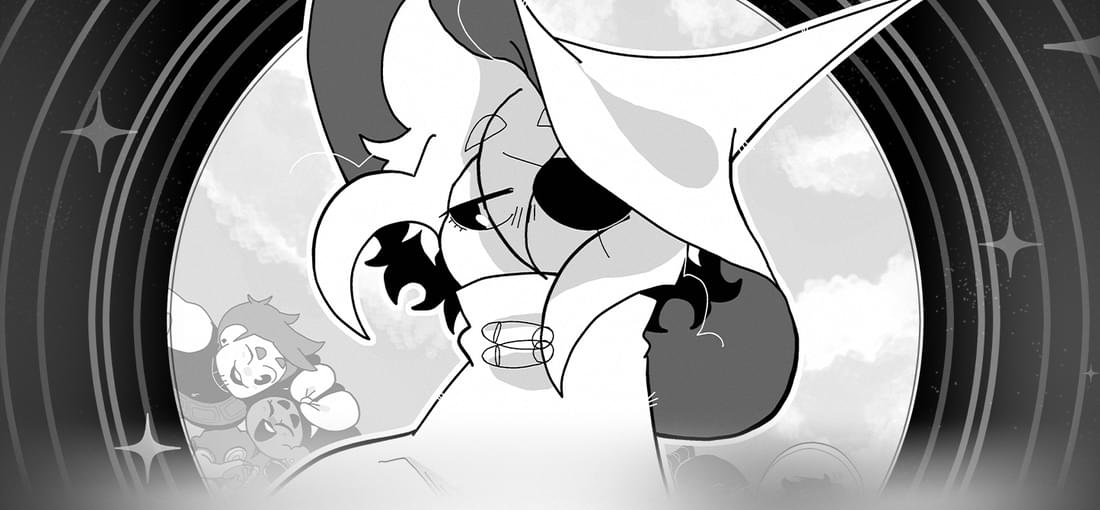
In Stars and Time is a weird game. The entire point of its time-looping premise means that, from a gameplay standpoint, you 'exhaust' the progression halfway through (give or take) and the games becomes more and more repetitive after that point (despite the options that become available to 'make things go faster'). I don't know if this is the best way the premise could've been executed, especially because if you have any interest in the optional content you'll need to repeat a lot of stuff a lot of time, which becomes tedious very fast; perhaps, more content being put into the combat for instance wouldn't have been unwelcome. However, I understand why the game was made with this structure and, thus, why it can be considered a 'by design' feature of sorts. Because it does service the story, and while that doesn't really make the issue any better, it makes sense in context. And the story is where the game truly shines. Overall, the game is supported by an interesting world-building, albeit a lot of it is conveyed by text, that is also connected to its time-related incipit to a an extent. Thankfully, the writing is great and manages to hold everything together, and excels when it comes to the cast of main characters that move the story and, most likely, will be the main reason you'll want to push forward: all with very different traits, quirks, backgrounds, and problems that make them all memorable, and a lot of the major story beats are based on those characters and their interactions with each other. I don't consider the game perfect in all aspects by any means, but I think that overall the final result is still something remarkable that deserves to be known by more people. And, if there's a chance that you may connect with one or more of the characters in a very specific way (confession: that's what happened to me), then the game may get dangerously close to a "one of the best games I've played" kind of deal. Despite this, keep in mind what I said in the first paragraph within this review and consider what you're getting before buying: it's a great time loop story, but it's also a time loop game with some undeniable quirks. —oh, and if you're wondering about "START AGAIN: A Prologue" and its abscence from GOG, don't worry too much. In spite of its name, START AGAIN's relationship with the main game is complicated and it's hard to explain why without going into spoiler territory, let alone the fact that every player of both has their own opinion on the matter. For what it's worth, in my case I believe that In Stars and Time is its own beast that can be enjoyed on its own fully. Yes, there are connections with START AGAIN, things that go beyond its nature as a prototype, a demo-of-sorts of ISaT, but to me those are additional insights that are food for theorycrafting rather than an essential part of the main story. And gameplay-wise (yes, including what I said earlier) I believe playing ISaT blind has its own merits. So feel free to dive into ISaT on GOG (well, if you don't care about achievements at least :P), your enjoyment won't depend on whether you've played START AGAIN first.
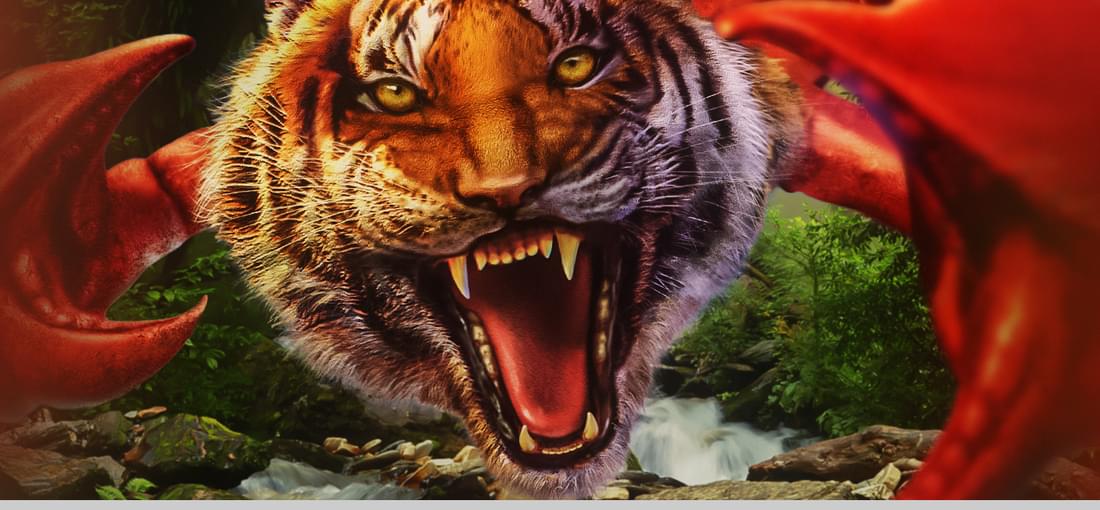
Impossible Creatures is a game that capture my attention ever since I read about its premise. However, even if I was aware of the main mechanic revolving about creating a roster of combined creatures as the bulk of your RTS army, I wasn't sure what to expect from the final result, and I am happy to say that the game exceeded my expectations. The main mechanic works pretty well and, during the campaign, gives you plenty of of reasons to continue to experiment as you get access to more and more animals to combine into creatures and your enemies use a different roster every match, which means you always need to revise your roster to beat every mission. How much you'll like this depends on your preferences, but personally, I liked that the game wanted me to get creative and continue to try new combinations throughout the campaign. Add to this a surprising dose of personality in terms of both style and tone thanks to the setting and colorful characters featured and a lengthy campaign that stops just before the game gets repetitive and we have a pretty solid recipe for a classic. The game isn't 100% perfect, and after doing the campaign I didn't find myself too interested in experimenting further in skirmish vs the AI (and if this is the case, you end up not being able to try out a few non-campaign creatures plus the ones from the Insect Invasion DLC), but I do think that it's one that given its strength nevertheless deserves at least a try, and for the price it goes nowadays, I see no reason not to recommend it!
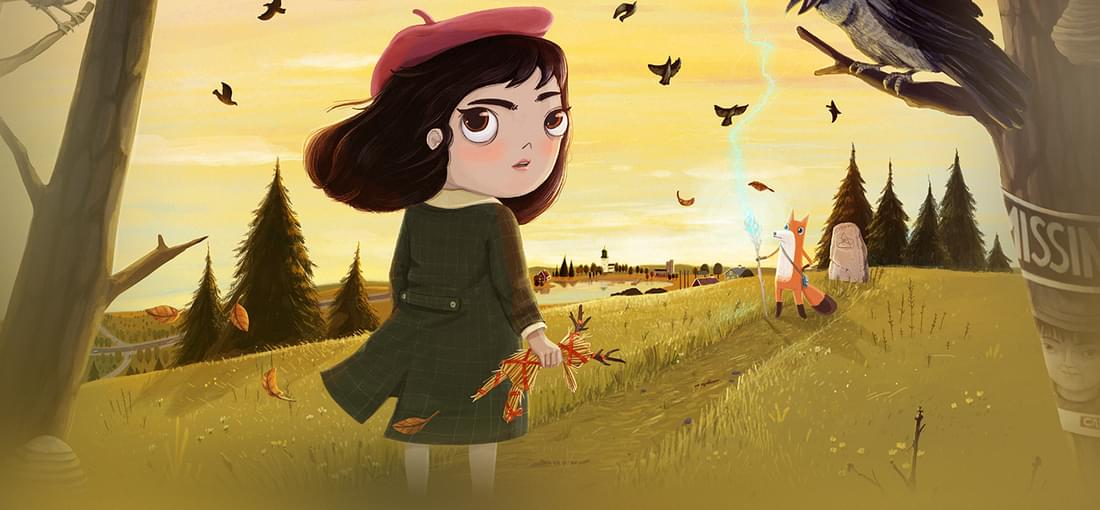
Little Misfortune is a different game from its predecessor from the same developers, Fran Bow (with which it shares the universe it's set in, although that's not really important story-wise if not for a piece of detail), and that can be off-putting. This is more of an interactive story with most point&click features replaced or downright removed, but this is not necessarily a bad choice: this game makes use of that to put the spotlight on the story and especially the two key characters, which are voiced this time with some great performances. There's also quite a lot of dark humor here, and creepiness is more about vibes than the horror imaginery (still present here but not as much as it was in Fran Bow). All of the game revolves around seeing the consequences of your choices in terms of the reactions of the characters, and this is executed incredibly well - at least in my opinion. I found myself being endeared by the voice acting and the general strangeness, even surprising me at times, and I definitely connected enough to pay attention during the final moments. So, despite the short time required to reach the ending, I ended up liking it a lot and believe it is worth a try (even if I still personally prefer Fran Bow overall as a videogame). I would just recommend keeping the specifics of this game in mind. As I said, it is different from its predecessor and a rather simple game overall - but with the correct expectations, you'll have a good time.
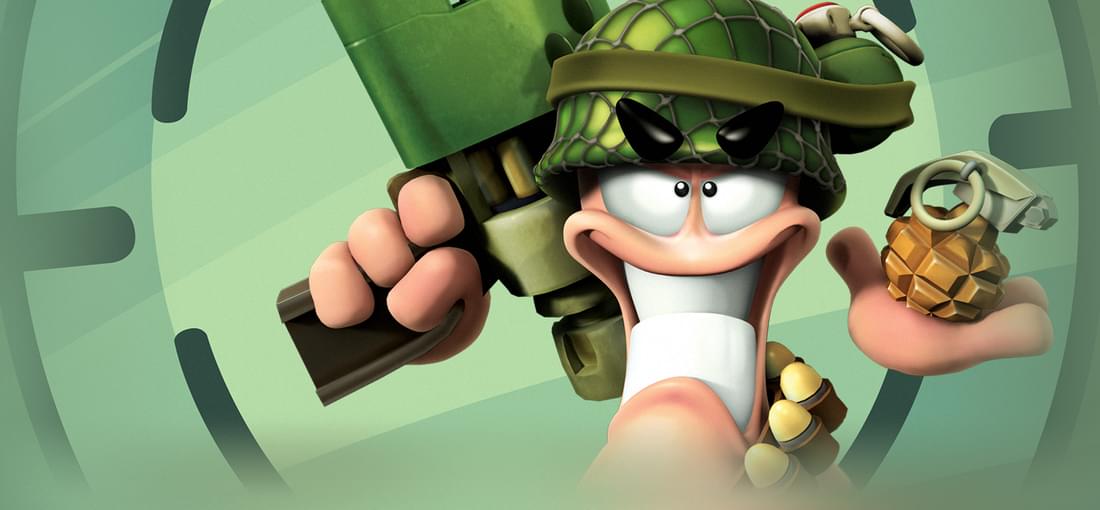
Worms Ultimate Mayhem is a revised version of Worms 4: Mayhem, one of my favourite childhood games and one that thanks to this new edition I've been going back to due to the geniune enhancements it features. However, it is not perfect by any means: it may have some performance problems on modern PCs that require some tinkering to solve and features some other oddities - between a bug specific to the GOG version (thankfully fixable by running a specific file in the install folder) and non-functional controller support requiring you to use third-party software to map them to k+m. Worms 3D content is included, but only partially, since there are only a portion of multiplayer maps available, with an obligatory sepia filter (removable via the Anniversary patch mod), only one music track from the original game for each map theme and no speech banks. Worms 4 content is also missing since the European language speechbanks are missing and we got one remixed track out of the two present for each map theme in the original. Now, all of this may sound harsh, but honestly I still have to recommend it. WUM is still a strong version of 3D Worms with some geniune improvements at least in my opinion (such as the secondary camera that follows the action while you move your worm during retreat time) that may very well be the reason I go back to this game every now and then. The missing content from past versions is the one thing that sticks out as a problem to me, though this mostly makes me wish that the original Worms 4 and especially Worms 3D (besides content differences, a very different game in gameplay from W4 that deserves to exist on its own) were also available on GOG. Hopefully one day they will. Note: the GOG version lacks online multiplayer. This may be a problem for you, but one advantage is featuring no online achievements; so, if you like to go after those, this version of the game is actually doable and more enjoyable to pick up to 100% compared to the Steam version.
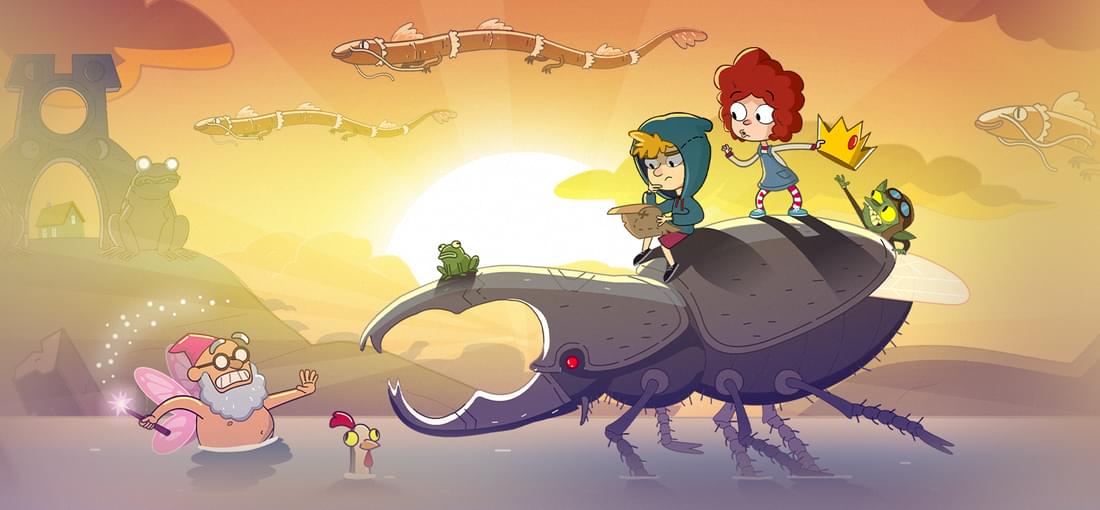
Lost in Play manages to combine together two worlds that I always thought were kinda born to be put together into one package (animated shows of today, and 'point & click' adventure games), and does so while making a big effort in standing out on its own. The best part about the game is for sure the atmosphere, helped by the well-composed soundtrack and the absolutely great artstyle that supports its presentation from start to finish, plus some stylistic choices (such as the entire game being dubbed via a gibberish language) that I quickly began to associate to this game specifically as I played it. The premise is very simple, honestly, but it serves the cozy vibes pretty well. Gameplay-wise the game is very far from point & click adventure classics, since the puzzles often take the form of mini-games or interactions with one or slightly more objects per screen, and the inventory rarelys gets filled to the limit. With a couple of exceptions, the game will feel like a clean and stress-free ride, which indeed is what the game aims for: don't expect enigmas that will make you pull at your hair while shouting obscenities at the screen, but rather some small puzzles that often are used as an excuse for some little humour moments here and there. Perhaps my only gripe is that the game can end quite soon - not because short games are a no-no, but rather because the 'I want more' feeling is very much present after seeing the final credits - more so when there are hints at what might have been possible within the story itself (I won't go in the specifics to avoid spoilers). Still, Lost in Play is definitely a game that ends before it gets repetitive and thus boring, and the experience itself is still worth a buy, if only to go on a trip down the memory lane and play a game that doesn't need complex gameplay or a bombastic presentation to tell its story and offer a few hours of good fun. Warning: keep in mind that the game is unfortunately *outdated* for the Windows version available on GOG (the Mac version is up-to-date), compared to the release of this game on other stores. I contacted the devs back in 2023 and they explicitedly told me they do not want to update the GOG Windows version. I will leave my rating unchanged as my love for the game itself hasn't really changed and this review is based on the D1 build anyway (where I encounted a single minor graphics-only bug and nothing else in terms of technical problems), rather than the updated one that features bugfixes, but I'm adding this warning here anyway since I believe it's fair for any buyers to be aware of this aspect before making a purchase.
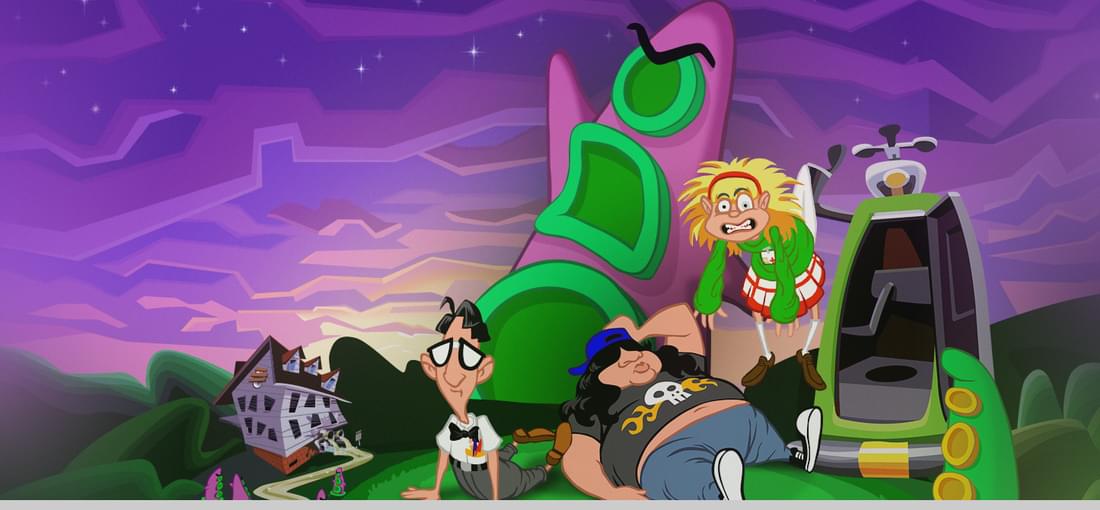
This Remastered edition was in fact my first experience playing this game at all. And not only did I enjoy it, I ended up dowright loving it! In terms of presentation I think that the update does justice to the original, or at least, offers a valid alternative to the original take in both graphics and soundtrack. Now the game is truly a cartoon adventure of sorts which doesn't look bad on modern screens at all. Gameplay improvements such as the verb wheel are also appreciated (I personally feel the verb system can be very tedious, which I experienced via the copy of Maniac Mansion that is present in DotT). And the strongs of the game are still present, such as the whacky, very peculiar humour that took me aback despite having played various graphic adventures before this one. It is a game I can recommend without a doubt! I wanted to mention two technical problems I encountered. The first one is a music bug that made music tracks loop in wrong places indifinitely, preventing you from experiencing the soundtrack. Thankfully a very recent patch fixed that, so in case you encounter mentions of this issue online, it's now fixed on GOG as well. The second one is a problem with subtitles that do not keep up with dialogue, making it so that the characters finish talking and then wait for the subtitles to finish, creating long awkward pauses that can be very annoying and ruin the timing of jokes. I'm not sure what the technicalities are, however there exists a method not stated in the controls window within the game that lets you increase or decrease the delay of dialogue subtitles. So in case you encounter this issue, simply choose a character you can repeatedly talk with and use their dialogue exchange as reference while editing the delay until you find your preferred value. The keys for changing it in a QWERTY Italian keyboard are '-' decrease and '+' increase, and they can be different for other keyboard types, so check how to do it in SCUMMV to find the correct keys.